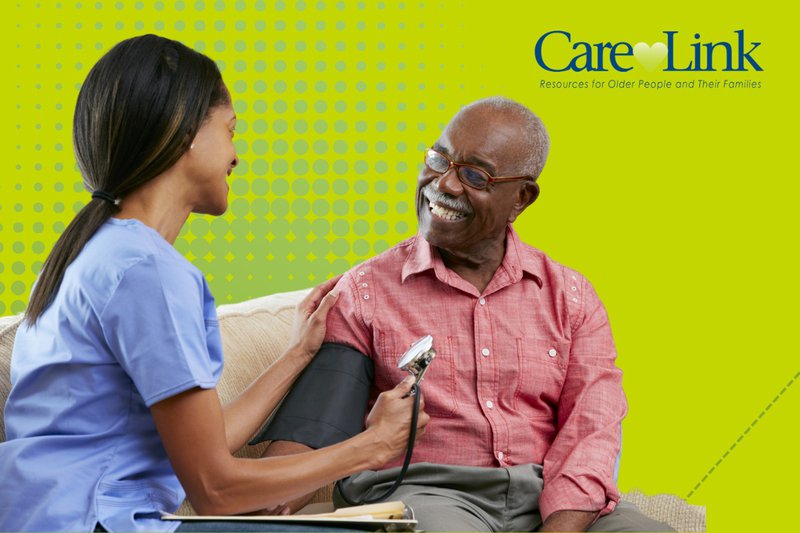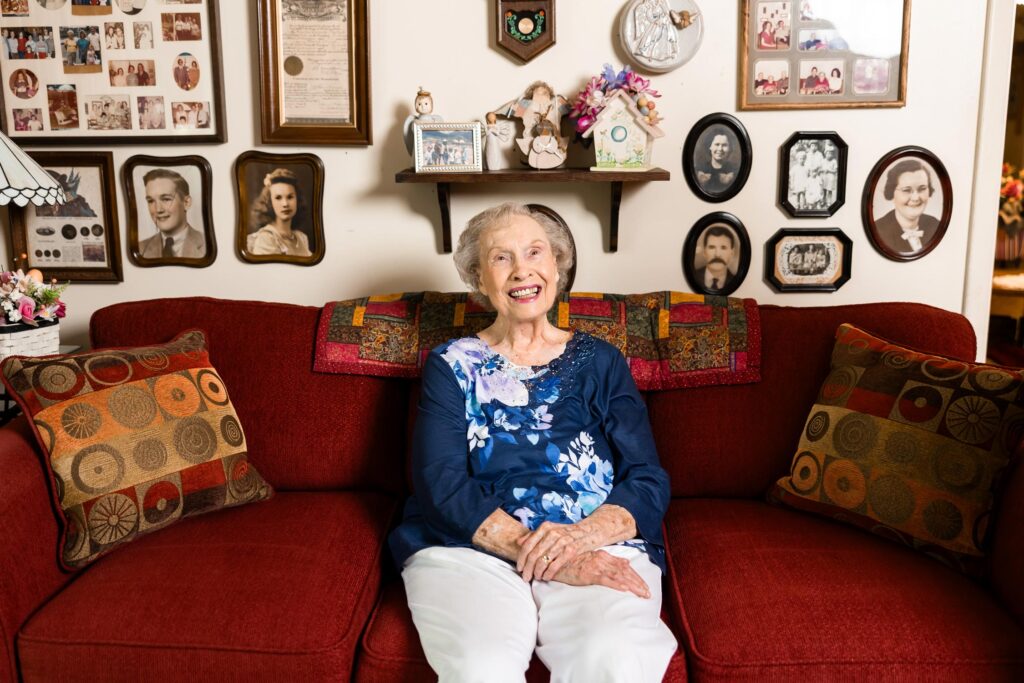Key Takeaways
- Understanding In-Home Care Services: In-home care services allow seniors to maintain independence and comfort while receiving essential support tailored to their needs.
- Types of In-Home Care: Services range from personal care like bathing and grooming to companionship and skilled home health care, adapting to each individual's requirements.
- Non-Medical Care Benefits: Essential for daily support, non-medical care focuses on tasks like housekeeping, meal preparation, and providing companionship, enhancing the quality of life for seniors.
- Role of Personal Care Aides: Aides assist with daily activities and monitor health changes, offering both physical and emotional support to seniors.
- Home Health vs. In-Home Care: Understand the difference: home health care involves medical services prescribed by doctors, whereas in-home care focuses on non-medical support.
- Costs and Financial Assistance: In-home care is often more affordable than institutional care. Programs like Medicaid waivers and VA benefits can help cover costs.
- Recognizing the Need for Care: Look for signs such as poor nutrition, loneliness, or mobility issues to determine when in-home care might be necessary.
- Choosing a Provider: A reliable agency ensures safety, quality, and peace of mind through trained staff, background checks, and continuous education.
- Personalizing Care: Tailor the care plan to your loved one’s changing needs. Regular assessments and open communication ensure the care provided is effective and supportive.
- CareLink Support: CareLink offers compassionate and professional services to help seniors age in place with dignity, providing a valuable resource for families in central Arkansas.

Understanding In-Home Care Services for Seniors: A Complete Guide
As individuals age, many prefer to remain in the comfort of their homes rather than move into assisted living communities or nursing facilities. Because of this growing preference, in-home care services have become a vital resource for families and seniors across the country. These services help older adults maintain independence, safety, and dignity, right where they feel most at ease.
When planned carefully, in-home care can provide both peace of mind and practical support. From basic daily tasks to skilled medical services, this guide outlines everything you need to know to make informed decisions about care options.
Exploring the main types of in-home care services for seniors
To start, it’s important to understand that in-home care services fall into three main categories:
- Personal Care: Primarily, this assists with daily living tasks like bathing, grooming, dressing, and eating.
- Companion or Homemaker Care: Additionally, this provides help with chores, errands, transportation, and friendly visits.
- Skilled Home Health Care: Furthermore, this delivers medical services like therapy, injections, and wound care, usually ordered by a physician.
While some seniors may only need help with light housekeeping, others may require more intensive, around-the-clock assistance. The beauty of in-home care is that it adapts to your unique needs and evolves as those needs change.
Understanding what non-medical in-home care includes
Non-medical in-home care services focus on supporting seniors in their daily routines without providing clinical treatment. These services often include:
- Light housekeeping (sweeping, dishes, laundry)
- Meal preparation and grocery shopping
- Medication reminders
- Transportation to appointments
- Friendly companionship and conversation
Overall, these services provide essential support for seniors, enhancing their comfort and lifestyle at home.
This kind of care is especially helpful for older adults who live alone or have limited mobility. It also offers respite for family caregivers who may need a break or additional support.
How Personal Care Aides Improve Daily Life
Personal care aides play a crucial role in helping seniors feel safe and comfortable. They assist with:
- Bathing and hygiene routines
- Dressing and grooming
- Safe movement and transfers
- Eating and nutrition monitoring
- Toileting and continence care
Although they do not perform medical procedures, they often observe changes in behavior or health that can be vital in identifying emerging issues. Their presence builds trust and provides emotional as well as physical support.
Comparing In-Home Care to Home Health Care
Many people confuse in-home care services with home health care, but they are not the same.
- In-Home Care: Focuses on non-medical support—cooking, cleaning, personal hygiene, and companionship.
- Home Health Care: Involves clinical services such as physical therapy, wound care, or post-surgical recovery, provided by licensed professionals and ordered by a doctor.
To qualify for home health care under Medicare, a person must be homebound and require skilled services. In contrast, in-home care is often paid out-of-pocket or through long-term care insurance, Medicaid waivers, or VA benefits.
Understanding Costs for In-Home Care Services
The cost of in-home care services can vary based on location, level of care, and how often help is needed.
- Hourly Care: Typically, it averages $27–$30 per hour, although rates tend to be higher in larger cities.
- Live-In Care: Generally, this ranges from $250–$350 per day, or $8,000–$10,000 per month.
- 24-Hour Care with Rotating Aides: Consequently, this can exceed $14,000 monthly.
While these prices may seem high, in-home care is often more affordable than assisted living or nursing home care, especially for part-time needs. Additionally, remaining in a familiar environment can significantly improve emotional well-being and reduce hospital visits.
Financial Assistance for In-Home Care Services
Paying for care is a concern for many families. Thankfully, several programs can help cover the cost of in-home care services:
- Medicaid Waivers: State-specific programs that cover non-medical in-home services for eligible low-income seniors.
- VA Aid and Attendance Benefits: Financial assistance for veterans and surviving spouses who need help with daily activities.
- Medicare: Covers skilled home health services but not regular personal or companion care.
Furthermore, some local nonprofit organizations and faith-based groups may also offer free or low-cost services like meal delivery, transportation, or home visits. For more information, you can check with your local Area Agency on Aging or community service providers.
Identifying the Need for In-Home Care Services
Recognizing when a loved one needs help can be challenging. However, there are key signs that in-home care services might be needed:
- Missed meals or poor nutrition
- Unpaid bills or unopened mail
- Frequent falls or mobility issues
- Poor personal hygiene
- Signs of loneliness or isolation
Creating a care plan involves assessing daily tasks, identifying safety concerns, and involving family members or trusted advisors. Ultimately, a good plan outlines what the senior can do alone, what requires help, and who will provide that help.
What Caregivers Do During In-Home Visits
Caregivers support seniors with tasks like:
- Meal preparation
- Personal hygiene
- Dressing and grooming
- Light housekeeping
- Medication reminders
- Transportation to appointments
Moreover, they offer companionship, which helps reduce the risk of depression and cognitive decline. In many cases, caregivers become like an extended family—trusted, present, and supportive.
Choosing a Reliable Provider for In-Home Care Services
Selecting the right provider ensures safety and satisfaction. A trustworthy in-home care services agency will:
- Perform background checks and drug screenings
- Employ trained and certified staff
- Provide ongoing education and emergency preparedness training
- Offer liability insurance and backup caregivers
- Assign a care coordinator for oversight
While hiring privately might save money, working with an agency offers more security, structure, and peace of mind. Agencies also handle taxes, scheduling, and replacement staffing if someone calls out.
Always ask about certifications, references, and how emergencies are handled. Look for agencies listed in reputable directories or those recognized by organizations like Home Care Association of America.
Evaluating the Safety of a Caregiver
Safety is a top priority. When evaluating a caregiver, check that they:
- Have passed state and federal background checks
- Can provide a verified work history
- Are trained in elder care safety, lifting, and fall prevention
- Know how to identify health warning signs
Ask how the agency handles complaints or care concerns. A good provider should be transparent and responsive. Reviews and testimonials from other families are also useful when making your decision.
Tailoring In-Home Care to Your Loved One’s Needs
Every senior is different. Some may only need light housekeeping a few times a week, while others require daily personal care or overnight assistance. That’s why personalized care is so important.
Start with a short-term plan. Reassess every few months or after a major health change. Keep communication open between caregivers, family members, and health professionals to ensure the care continues to match your loved one’s evolving needs.
Connect With CareLink for Local Support
Let CareLink Help You Age in Place With Dignity
If you or a loved one is considering in-home support, CareLink is here to guide you. We offer compassionate, professional in-home care services in central Arkansas to help seniors live safely and independently. From personal care to support for family caregivers, our team is ready to help you every step of the way.
Contact CareLink today to learn more or schedule a free care consultation.
Whether your family needs occasional help or ongoing care, in-home care services can offer a life-changing solution. By understanding the types, costs, and benefits of care, you can make the best choice for the ones you love. With the right support, aging at home becomes not only possible—but deeply fulfilling.





